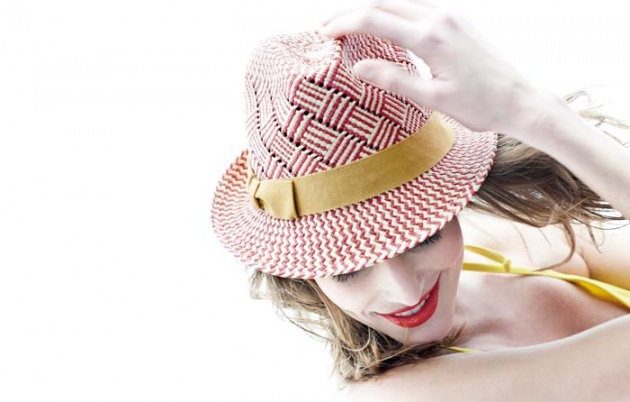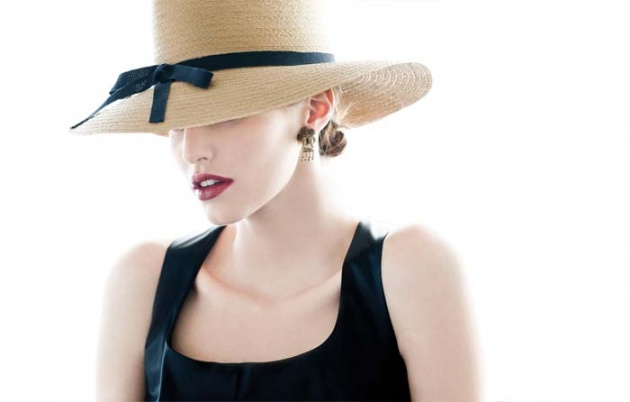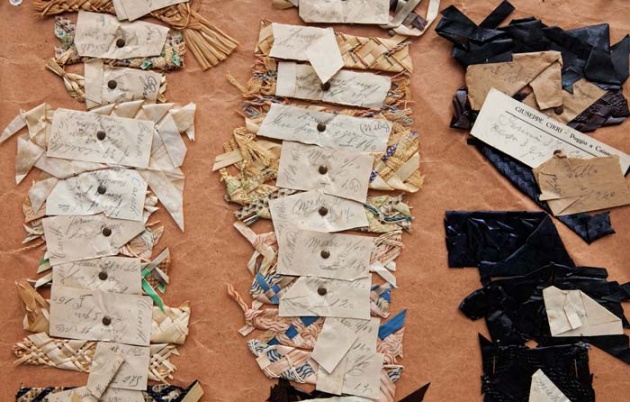
Nel nostro “Bel Paese” molte manifatture dedite all’arte di creare cappelli hanno una loro dimensione familiare e quando parliamo di famiglia, spesso raccontiamo storie di donne. Nella ditta Inverni i nomi femminile da ricordare sono tre: Roberta Cirri e le figlie Maria e Paola, timoniere dell’azienda nelle aree di ideazione stilistica e pianificazione commerciale. Una realtà dal cuore tutto femminile. Un esempio prezioso nella storia della paglia di Firenze che testimonia come in passato le donne abbiano saputo crearsi, in questo mestiere, una precisa identità professionale, tanto nell’intrecciare la paglia quanto nella gestione della propria azienda. È il caso di Inverni, storico cappellificio fondato a Poggio a Caiano nel 1892. Acquisito negli anni dalla famiglia Cirri, forte di una preziosa esperienza nel settore della maglieria, “Inverni Firenze 1892” unisce la tradizione artigianale nella lavorazione del cappello e competenze tramandate per generazione familiari nella conoscenza dei filati tessili. Il suo stile è essenziale, raffinato e delicato, grazie alla costante ricerca nella sperimentazione di materiali e fibre naturali. Caldi inverni assicurati da cappelli in feltro pregiato e capi d’abbigliamento realizzati esclusivamente in lane pregiate come il cashmere o l’alpaca del Sud America. Per l’estate, ovviamente, cappelli di paglia e panama accostati ad accessori in tessuto di seta, lino e cotone. Qualità e prodotti esclusivi che hanno permesso alle creazioni Inverni di diffondersi nei principali mercati europei, con la costante presenza nei più importanti grandi magazzini delle capitali della moda, come il Liberty di Londra o il Bon Marché di Parigi, fino a toccare le coste dell‘Estremo Oriente. Inverni, una forte memoria storica, custodita dallo spirito pratico e vitale di Roberta Cirri e ricordata, all’interno dell’azienda stessa, dalla romantica presenza dei vecchi bauli da campionario, dalle antiche trecce di paglia appese alle pareti o da mensole riempite da forme lignee per modellare cappelli che ci ricordano l’importanza del “pezzo unico”. Tracce del passato che indicano con sicurezza la strada del futuro.

Many “Bel Paese”factories devoted to the art of creating hats are family firms, and when we talk about family, usually we mean women. In the Inverni company, there are three female names to remember: Roberta Cirri and her daughters Maria and Paola, who head the firm’s design department and commercial planning. The business has a female heart. The history of Florentine straw bears witness to women who were able to forge a professional identity for themselves in straw-work: in braiding as well as running their own companies. This is the case at Inverni, an historic hat-factory founded in Poggio a Caiano in 1892. The factory was bought by the Cirri family, who were in the knitwear business; “Inverni Firenze 1892” united the traditional hand-crafted hat-making tradition with the skills and knowledge of yarns passed down through generations. The company’s style is simple, refined and delicate, thanks to constant research in natural materials and fibers. Warm winters are guaranteed by hats in top-quality felt and soft garments made from prized wools, such as cashmere and South American alpaca. For summer, there are ranges of straw hats and panamas ornamented with silk, linen and cotton fabrics. These high-quality exclusive products have allowed Inverni creations to spread into the major European markets, with a constant presence in high-end boutiques and the most important department stores in fashion capitals: such as Liberty’s in London, the Bon Marché in Paris, and their equivalents in the Far East. Inverni has a strong sense of history, personified in Roberta Cirri’s vital, practical spirit and recorded within the firm’s premises by the romantic presence of antique sample crates and straw braids on the walls, and shelves stacked with wooden hat-blocks to monumentalize the importance of the “unique piece”. These traces of the past are a strong indicator towards the way to the future.




